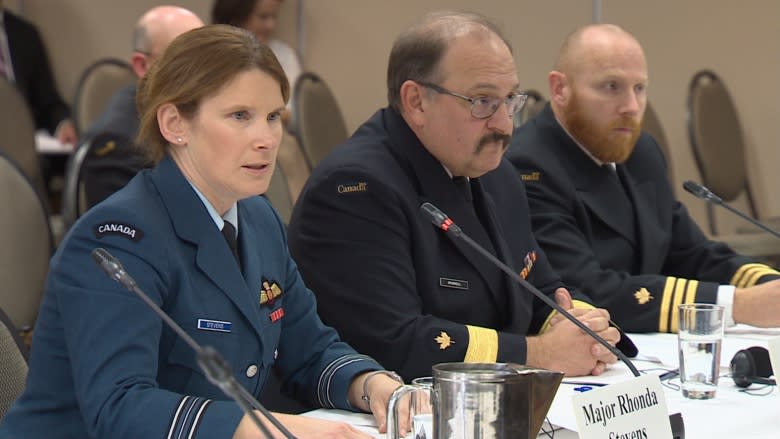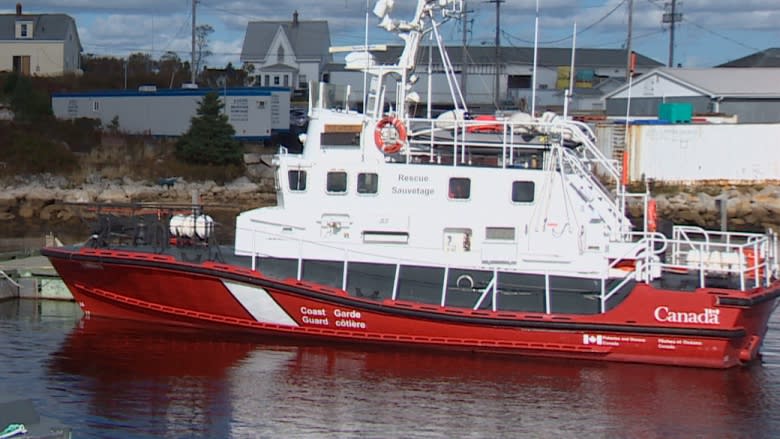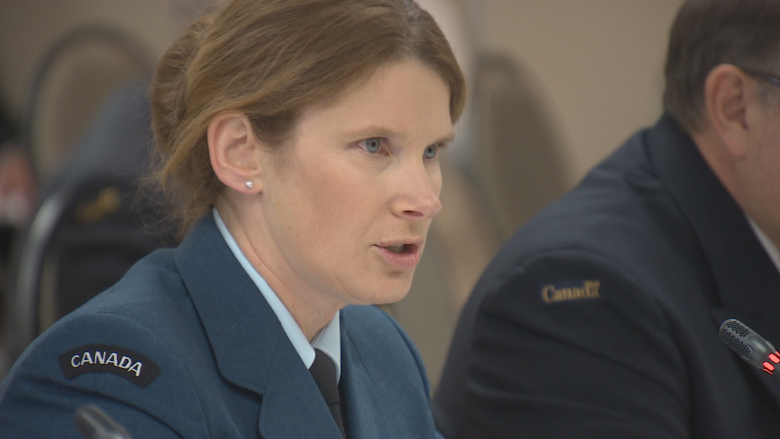Senate group hears 'serious concerns' with search and rescue
A Senate committee studying Canada's search and rescue capabilities toured East Coast facilities and interviewed local experts this week, as it prepares recommendations for the service's future.
Rescuers from the Halifax search and rescue region, which spans 4.7 million square kilometres from the Maritimes to north of Iqaluit, respond to approximately 2,300 calls per year.
That averages more than six distress calls every day.
New equipment prompts new concerns
For such a busy and important service, senators heard some substantial concerns.
"We've heard concerns about the replacement of assets," said Senator Fabian Manning, chair of the standing Senate committee on fisheries and oceans.
New shore-based Canadian Coast Guard lifeboats are set to be delivered next year. They'll replace current vessels that can self-right if they ever capsize.
"The present one now can completely do a 360-degree turn in the water and come back up," Manning said. "The one that's coming can't."
He also mentioned concerns about new fixed-wing aircraft. Specifically, the committee heard that the four-engine C-130 Hercules will be replaced with a two-engine plane.
"When you're talking about going six or seven hundred miles out on the Atlantic Ocean and you're dealing with two engines and something happens, you only have one to get back home," Manning said.
Resourceful schedule changes
Another problem is budgetary constraints.
For years, response times — the time required to put a rescue asset in the air — have been 30 minutes during weekdays, but two hours during evenings, weekends and holidays.
Maintaining a 30-minute response time 24 hours a day would be an expensive addition to the budget.
This year, the search and rescue service did something different.
Officials analyzed data from past years. They realized that 8 a.m. to 4 p.m. Monday to Friday are not necessarily the service's busiest hours.
So, the quick-response window was shifted to cover 10 a.m. to 6 p.m. Saturday to Wednesday.
Essentially, the "weekend" response standards were moved to Thursday and Friday, to accommodate busy Saturdays and Sundays. All for no additional cost.
Multi-asset rescue
One example of a weekend rescue came on July 17, shortly after midnight.
The Oman Sail, a trimaran, capsized 800 kilometres east of St-Pierre-Miquelon. Five crew members stayed with the boat, including the captain who was injured.
The Halifax Joint Rescue Coordination Centre (JRCC) deployed a helicopter, a C-130 Hercules, the coast guard ship Leonard J. Cowley and put out a call for help from any ships near the Oman Sail.
"A motor tanker transiting through the area responded to the distress broadcast and extracted the five sailors from the Atlantic Ocean," Maj. Rhonda Stevens, officer-in-charge of the JRCC, told the Senate committee.
While Oman Sail's crew was being loaded onto the tanker, the rescue helicopter made a stop at an offshore oil platform to refuel. It then flew to the tanker to hoist the injured captain on board.
The remaining crew members were transferred to the coast guard ship once it arrived on scene.
Stevens told the Senate committee it was one of many examples of a multi-faceted rescue team working together to save lives.
At least one report coming next year
Manning confirmed that the standing Senate committee's final report would be complete by late 2017.
However, there is a possibility the committee may write an interim report. This report may be released to coincide with a Department of National Defence review, since the search and rescue service often relies on military assets.
"Hopefully we can provide some positive recommendations to try to improve this very very worthwhile service," Manning said.




